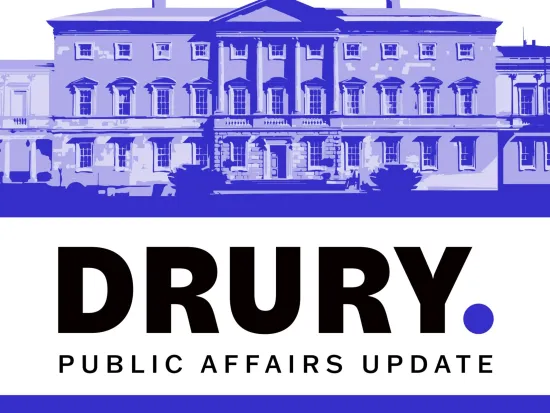‘‘When Crisis Strikes: Why No Organisation is Immune – and How to Be Ready’’
The National Lottery has a popular tag-line – “It could be you!”. In our idle moments, we have probably all wondered what we would do if it was us – how would we react to such good news.
More than likely, we have not wondered as much about what we would do if the opposite happened. If your organisation was hit by a crisis which interrupted its daily life and took its people completely away from their normal function. Have you looked at an organisation in crisis and thought – “that would never be us”. If you have, you are mistaken.
Crises can hit any organisation, large or small. The risks are many. A death or a serious injury at your office, the emergence of serious financial or governance irregularities, a major interruption in your ability to deliver your service or product, data breaches or cyber-attacks, some misbehaviour by a staff member. The list is endless.
A crisis, if not managed effectively, and in particular, if it is not perceived to have been managed well, can damage the reputation of an organisation. Crisis management deals with the reality of the crisis – putting the pieces back together, restoring normality i.e. managing the operational issues. Crisis communications deals with how others interpret the crisis and the response to the crisis.
So what would you do if hit by a crisis? No two crises are the same. But having advised clients on crisis communications for decades there are some basics that you need to get right.
Ideally you will have thought about your reaction and have a crisis communications plan in place. This need not be an overly complicated document. Just set out roles and responsibilities, who will do what. What process will be in place to deal with communications? Do we need some training if we have to put a spokesperson out into a difficult environment? Have we access to an external source of advice that will help us assess and respond effectively. An external voice can also reassure you that this crisis is manageable and it will pass.
The first priority when a crisis strikes is to establish the hard, cold irrefutable facts. Beware of internal stakeholders who might wish the facts to be different. To paraphrase John 8:32, “the truth will set you free, but first it will make you miserable.”
Common mistakes made in the early days of a crisis include giving an early but inaccurate response or trying to put a good face on a bad situation. Above all, don’t blame someone else if ultimate responsibility rests with you.
Crisis communications always needs to be accurate, relevant, and honest. It’s OK to issue a holding response that explains what you are doing to get the information necessary to give a full response. Be straight about what you know, what you don’t know and what you are doing to fix the problem.
Always remember that knowledge is power. New accurate information is news currency. You can earn credibility by demonstrating openness and transparency. Ironically, this is true when you are releasing information that is negative to you.
Most crises have a natural life – the story breaks, information comes out, there is a wave of reaction, maybe more information emerges – but eventually the story runs out of steam. This is the pivot point – it draws a line between the past and the present. It might be triggered by an apology, an announcement for an independent review, a resignation etc.
A crucial response to any crisis is to conduct a review of how it was handled. An honest assessment of the decisions and communications made is vital if future mistakes are to be avoided. I’ve seen scenarios where the review revealed that information was available within the organisation long before the crisis hit that would have helped its management and communications.
Like the lotto, when it comes to a crisis – It could be you! But if managed well and the response is communicated effectively, a crisis does not have to result in reputational damage to your organisation.
Gerry Naughton, Director Public Affairs and Regulatory





